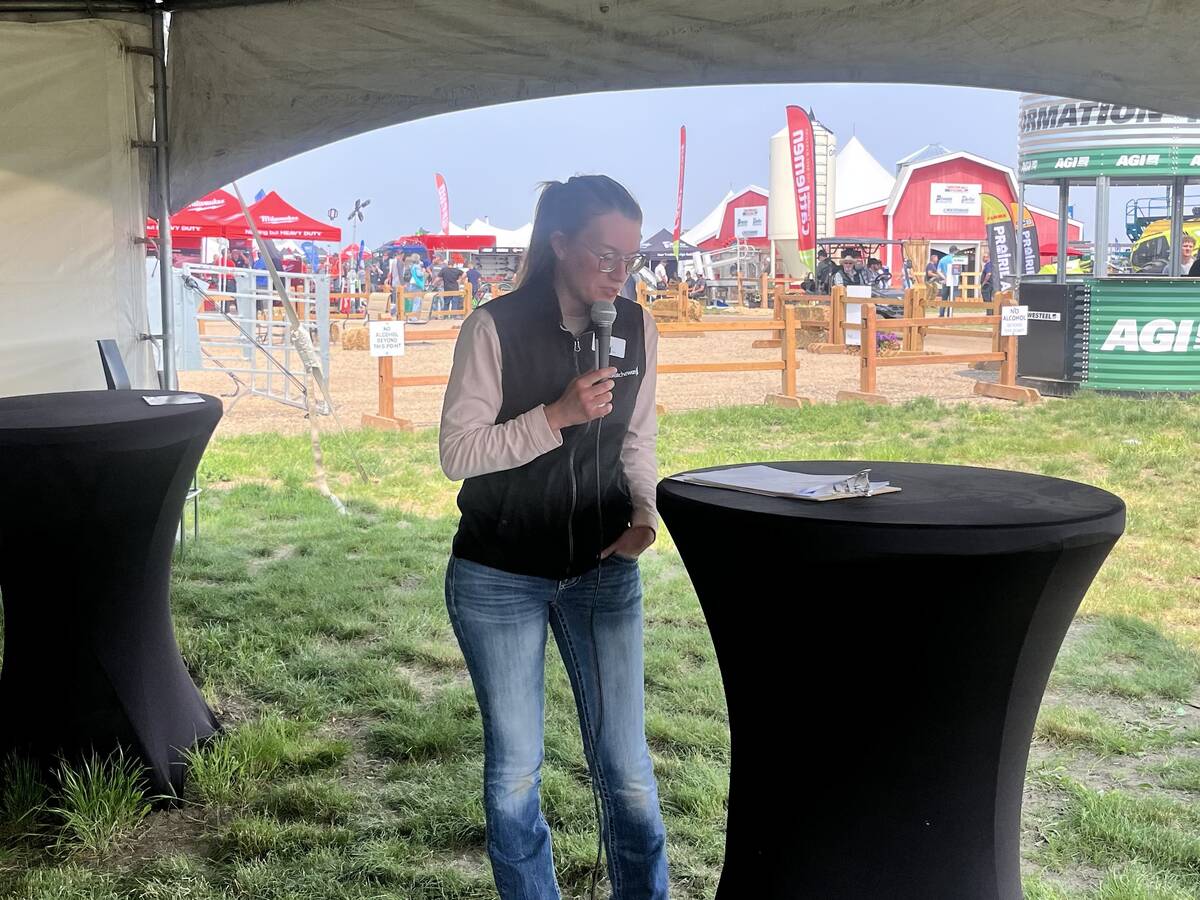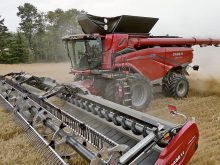A host of new crop traits are being developed for Europe’s GM-sensitive market by one of the world’s leading distributors of off-patent pesticides and a U.S. biotechnology company.
Makhteshim-Agan and Cibus Global have signed a development deal that will see Makhteshim-Agan invest $37 million over five years to develop traits in five crops with a European focus. Some of those crops will also appeal to Canadian growers, according to one of the companies involved.
Keith Walker, president of Cibus, said the partners are not yet ready to divulge the full list of crops and traits they will be jointly developing but he said canola is in the mix.
Read Also

Ag in Motion speaker highlights need for biosecurity on cattle operations
Ag in Motion highlights need for biosecurity on cattle farms. Government of Saskatchewan provides checklist on what you can do to make your cattle operation more biosecure.
The company has extensive experience in canola. It has used its proprietary Rapid Trait Development System (RTDS) to create a non-GM herbicide tolerant canola that has been field-tested and is ready to be bred into commercial lines.
RTDS is a directed mutagenesis technology that uses a cell’s own gene repair system to modify specific gene sequences in plants. There is no integration of foreign genetic material in the plants, which makes the new crop traits palatable for GM-sensitive markets like Europe.
Cibus has licensed the trait to BASF, which is using the technology to create more cost effective and higher-yielding lines of Clearfield canola that should be commercially available by 2013.
The company is also working with another undisclosed partner in Europe on developing a herbicide tolerant line of winter oilseed rape.
Traits being explored in the joint venture with Makhteshim-Agan include insect, disease and herbicide tolerance.
Walker suggested Cibus may finally have resources to tackle the development of a non-GM, herbicide tolerant wheat that would be embraced by European millers.
“Armed with a large partner, we now have the muscle behind us to start to take on crops that are broader acreage crops like that. That’s a potential in our mix,” he said.
He also mentioned barley as a possible candidate for trait development through the RTDS technology, since it is a huge crop in Europe and a major one in North America as well.
Cibus already has commercialization partners for sorghum and rice and is in discussions with players in the flax industry.
Walker said the RTDS technology can offer flax much-needed new traits without jeopardizing markets as recently witnessed when Canadian flax sales to Europe ceased after European labs found GM flax in some food products.
“We can be the foster parent for flax and help the industry avoid these kind of dust-ups,” he said.
Two obvious starting points for flax would be herbicide tolerance and the development of specialty oils. A third option would be to modify some of the crop’s fibre characteristics for bio-energy purposes.
Walker said the $37 million injection from Makhteshim-Agan allows Cibus to take its RTDS technology to the next level and should accelerate the development and commercialization of non-GM traits.
“You have this opportunity now to really turn the corner and break the back of some of the technological hurdles that you’ve faced,” he said.
“It represents a validation of both our business plan and our technology.”
A separate agreement allows Makhteshim-Agan to gradually acquire up to 50.1 percent of Cibus.
The deal gives the chemical company an entry into the trait and seed business, which has been the trend in the crop protection world. Monsanto, Dow, DuPont, Syngenta, BASF and Bayer have all evolved into biotechnology and seed companies.
“(Makhteshim-Agan) have now joined their peer group with this new capability,” said Walker.

















